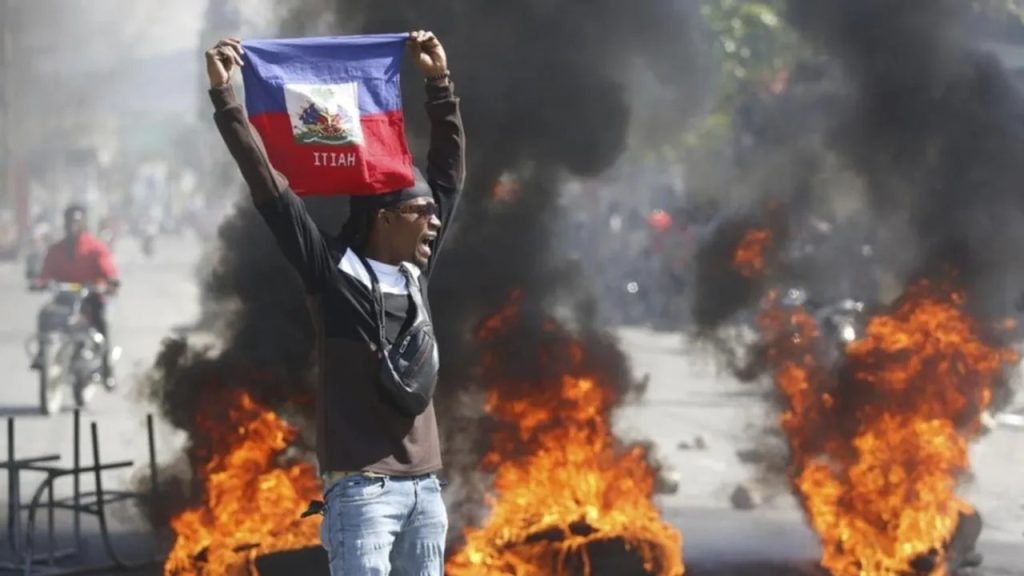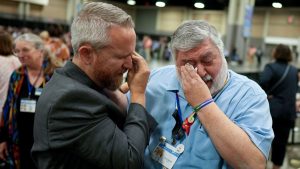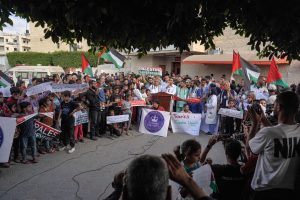PORT AU PRINCE, Haiti, CMC – The Secretary General of the Organisation of American States (OAS), Luis Almagro, has expressed his deep concern about the current situation of insecurity in Haiti even as the whereabouts of Prime Minister Dr. Ariel Henry remains a mystery.
“It is more necessary than ever to promote cooperation efforts in the United Nations to restore security in the country. It is irresponsible that the necessary measures and actions continue to be delayed,” Almargo said in a statement.
”Without security, there will be no democracy. In that sense, we reaffirm our support for the Haitian people, within the country and in the diaspora, and our commitment to continue collaborating to promote a solution that advances the much-needed democratisation process in the country, seeking guarantees in human rights and protection for all and a peaceful context in which to hold free and fair elections in Haiti.”
Almagro said that the OAS General Secretariat is determined to strengthen its cooperation with Haiti to confront the current challenges of democratic instability, unemployment, food insecurity, illiteracy, health insecurity, corruption and other sociopolitical and socioeconomic problems that affect the country.
The authorities have been forced to impose a curfew and state of emergency as they seek to regain control of the country following last weekend’s security situation that resulted in several inmates being freed by criminal gangs.
Economy and Finance Minister, Patrick Michel Boisvert, who is leading the government in the absence of Prime Minister Dr. Ariel Henry, who is overseas, said that the decree announcing the curfew and the state of emergency takes into account the attacks perpetrated on the night of March 2, by armed gangs against the two largest penitentiary centres in the country.
However, there are concerns regarding the whereabouts of Prime Minister Henry, who is reported to have left Kenya last Saturday after signing the reciprocity agreement allowing the deployment of the Support Mission to the National Police of Haiti (PNH).
Media reports in Haiti said that the Cap Haitien and Toussaint Louverture airports have become the target of the criminal gangs who want to prevent Henry and his delegation from returning to the country.
On Monday, several activists from the opposition “Pitit Dessalin” party gathered in front of the Cap-Haitien International Airport urging those responsible to block the return of Prime Minister Henry.
The date of his return remains unknown and according to the media reports here, following the cancellation of all commercial flights, it is being rumoured that the Prime Minister will arrive here by a charter flight.
On Monday, a US State Department spokesman said “we think it is important that he does that (return to Haiti) and that he is allowed to do that”.
The International Organisation for Migration said last week that in just three days it estimated around 15,000 people fled gunfire in the capital, many of them from makeshift camps in schools, hospitals and squares where they had already been displaced.
The International Rescue Committee said aid groups it works with had to pause their work given the security situation.
“The conflict has escalated dramatically, with rival gangs working together to expand their control over Port-au-Prince, and violent actions taking place in broad daylight,” it said in a statement.
The Mexican Embassy here has followed other foreign countries in announcing the closure of its diplomatic mission.
It said that those with appointments will receive an email rescheduling their appointment.
“Thank you for your understanding. Due to incidents of violence in the capital, avoid all non-essential travel and be aware of your surroundings.
Brazil’s government called on the international community to implement the U.N.’s resolution to send a multinational force to Haiti.
Brazil authorities noted in a statement that it had led a United Nations peace mission to Haiti from 2004 to 2017.
Last Friday, Kenya and Haiti announced that they had signed an agreement that would allow the African country to lead a United Nations Security Council sanctions Multinational Security Mission (MSS) to restore peace and security in the country.
Last October, the UN Security Council authorised the deployment of the MSS to back Haiti’s beleaguered police force, which Kenya offered to lead.
A 2022 sanctions regime, targeting gang leaders and their financiers, was also renewed.
But in January, the Kenya High Court ruled against sending troops to Haiti as part of the Multinational Security Mission (MSS) to restore peace and security in Haiti.
The High Court ruled the deployment, initially expected by January, unconstitutional in the absence of a “reciprocal arrangement” with the host government.
But according to the “reciprocal arrangement” signed on Friday, Kenya hopes it will satisfy the court’s objections to its plan to send 1,000 police officers to Port au Prince.






More Stories
SVG’s PM gets Japan’s highest award
SVG eliminates mother-to-child transmission of HIV and syphilis
Haiti’s CPT elects new president & prime minister